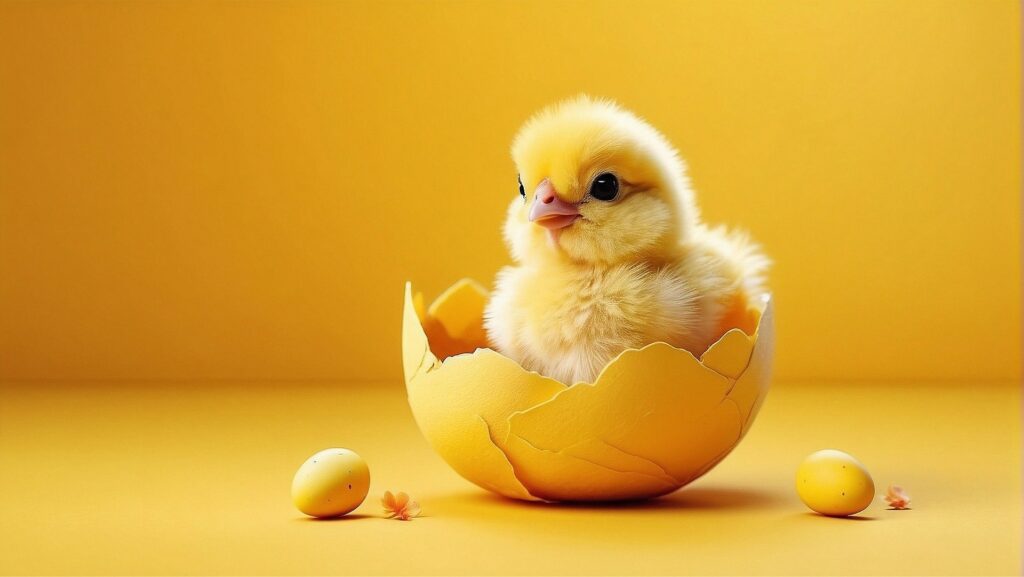We all have heard that the key difference that sets successful people apart is their ability to make decisions swiftly and stand by them.
But, in an abundant modern world, brimming with choices, especially if you’re an intelligent and creative mind, it’s easy to get carried away. The sheer volume of options can create an illusion of boundless possibilities, leading one into a trap of endless deliberation on which option would yield the best outcome.
From a mundane decision like selecting a croissant to a more significant one like determining which business idea to pursue, the struggle with decision-making knows no bounds. While some people make up their minds quickly, others are grappling with indecision, unable to settle on a course of action.
Behaviours and Patterns of Successful Decision Makers
If we were to observe someone highly accomplished in life, we’d likely notice distinct behaviours and patterns. And the most striking one would be — they seem to know precisely what they want. So, let’s focus on the key differentiators in the decision-making process and find out how you set yourself on a journey of adopting desired behaviours.
Similarly to how kids mimic adults without fully understanding the mechanics, we can adopt successful decision-making strategies through observation and practice. And while exploring this in more detail we’ll consider the tools and techniques that facilitate this process.
But, first of all, to ensure lasting change, we need to start recognising our patterns, secondary gains (or hidden intentions behind certain attitudes and choices) alongside other unconscious motives that we might not be fully aware of yet, but adhere to, for our well-being, inadvertently obstructing our growth.
It’s also equally crucial to deepen our self-awareness and understand our true priorities. Many acknowledge that dreams often remain elusive yet very few truly grasp their authentic desires.
Do You Know What You Want?
I remember meeting a client — a young man poised to enter his father’s established business. The moment we sat at the restaurant, he quickly picked a few things on the menu without much consideration. I asked whether he’d been at that restaurant before. ‘No,’ he said, ‘I’ve got no clue what I’ve ordered. But I used to be so indecisive that my dad was always embarrassed for me whenever I joined him for any business lunch or dinner.’
Gladly, his order seemed edible. Though judging by his expression, practically untouched plate and his comment about the main, ‘Next time I’m here, I might try something else,’ it probably didn’t quite hit the spot.
That stuck with me. A remarkable example of prompt decision-making and willingness to experiment, alongside determination to wilfully change an established attitude. Yet, I thought to myself, paying 60 quid for a meal, you’d probably want to savour at least a bite? Right?
And there was I on the other end of the spectrum. Given it was a business meeting, I resisted the temptation to take my sweet time. Neither ordered what I was curious about — being unsure whether the description would materialise on a plate. Instead, I went for a safe familiar option. The choice I regretted later, seeing a dish I craved for landing on a neighbouring table. Oh, boy, that looked yummy!

Venturing into the Unknown to Get to Know Yourself Better
At that moment, I became intrigued by the contrast between following the familiar path and venturing into the unknown. It reminded me of the saying, ‘The magic is in the unfamiliar.’ Reflecting on that, I concluded that we often don’t realise what we don’t know until we explore new avenues. Experimenting allows us to expand our experience, deepening self-understanding and refining preferences.
You might be cautious that this can exacerbate existing patterns of indecisiveness. However, if we dig into its root we’ll notice that it stems from a fear of uncertain outcomes and their consequences.
Sometimes it’s Good to Be in Two Minds
Our upbringing plays a significant role in how we make decisions. Some of us were given choices from childhood, fostering clarity in our preferences. Others, however, were told what to do — and those are usually the ones who are less decisive.
The reasons are simple. Firstly, they became accustomed to someone else making decisions for them. And secondly, they never had an opportunity to discover their true preferences. How would you know what you like if you haven’t checked other options?
If you recognise yourself in the latter category, it’s important to become clear what you want. To do that you need to start listening and hearing yourself.
Don’t rely solely on your rational brain. It might well pose like the wisest organ within your body. And, indeed, it comes in handy while decoding your feelings. Intelligence is great for reflection. Yet for self-awareness, it’s best to tune into your intuition or gut feelings.
Unconscious Decision Making
For some, this concept of intuitive decision-making may sound strange, and that’s okay. But take a moment now, and you might recall a situation from your past when you suddenly halted a split second before an unexpectedly approaching car. Or when another significant event occurred seemingly miraculously.
In reality, we possess various facets of our minds that manage endless tasks our brains and bodies handle. And to prevent us from going insane, on a conscious level we’re only aware of what’s pertinent in a given moment. More than 95% of our accumulated knowledge, which essentially steers our lives on autopilot, lies within a realm of our unconsciousness.
That enchanting tool nestled within us possesses an innate wisdom. It also functions as our inner child, governing our emotions and feelings. When displeased, it communicates through a range of sensations. It’s crucial to heed this voice to be aligned with what truly matters.
Allow Yourself to Experiment to Find What Suits You
Start with something simple, like experimenting with breakfast. Open your fridge or glance at the menu, if you’re at a restaurant. And imagine yourself enjoying one meal over another if you have a few options. You’ll intuitively know the answer.
On the contrary, if you appeal to rational decision-making, your brain might start tallying calories or consider what’s deemed healthy. The outcome could vary. One day, you might crave broccoli. Yet it’s different from forcing it on yourself because a new fashion show insists it’s time to go green. And it’s acceptable to desire something else at times. Our bodies sometimes know more than we’re aware of. And that’s a similar case with other areas of our lives.
An interesting observation. The more you allow yourself to explore all possible alternatives without imposing artificial restrictions, the quicker you’ll gravitate naturally towards the healthier options that benefit you in the long run.
Certainly, both emotional and rational choices have their place. And sometimes, practicality trumps desire. You might feel like staying in bed with your partner, but it’s time to take your kids to school and ideally feed them breakfast beforehand. And this leads us to the hierarchy of priorities.

Hierarchy of Wishes and How to Get Off Reptile’s Hook?
Having various sets of brains within our complex systems doesn’t make our lives easier.
You might entertain the idea that it’d be blissful to do nothing. Yet, if you play that fantasy for a while, you’ll soon realise that even if you’re not strapped for cash, you’d end up bored out of your mind, especially if you’ve got a curious mind.
Our primal brain, however, is wired to seek satisfaction in the quickest way possible and constantly looks for shortcuts. For instance, when you’re hungry, fish and chips might seem far more appealing than a stick of celery. But if you tune into your feelings rather than animal instincts, you might discover you’re up for a bowl of hearty soup.
Life’s choices extend beyond a mere menu. And that’s where we need our rational brain to stay alert to discern our true wishes from impulses triggered by momentary desires or those implanted in our minds by external ‘authorities.’
Consider a fashion magazine promoting miraculous results from a mono-diet versus a young breastfeeding mother who prioritises the health of her baby. That’d require a diverse array of nutrients for herself and her child. Or take the case of an authoritative father who insists that his son, no matter what he wants, must follow in his footsteps to inherit the family firm.
When people follow external advice that isn’t aligned with their aspirations, they risk suffering from leading lifestyles incongruent with their values. The major risk is you finding yourself one day living not your life.
Steering a Wheel of Cognitive Biases for Informed Decision Making
With various parts of our brain vying for attention — the rational, emotional, and primal — navigating through life’s choices can feel like wandering in a maze. However, rather than being at the mercy of this intricate machine, we have the power to learn how to drive it. By shifting gears at the right moments, we can take control and steer ourselves toward our desired destinations.
However, our minds are prone to change. One day, we may feel motivated to do something, let’s say go to the gym. Yet the next day especially if it rains or we’re tired after a long day, we may reconsider. These seemingly innocent adjustments significantly contribute to our mood swings, which you’d doubtfully want to become your new norm.
Let’s say you’re contemplating the idea of enrolling to a gym. Start by asking yourself: what made you think about it? Perhaps your friend, partner, or a family member suggested it as a good idea to get in shape. Maybe, you stumbled upon an article in a magazine, highlighting the advantages of being fit to attract someone’s attention. Or, it could be that you took a long, hard look in the mirror and decided it was time to change. Alternatively, you might simply enjoy the feeling of working out.
You can see there are various drivers. Motivations arising from external pressures or societal demands might fade quickly. If it was your aha moment that it’s time for a change and the idea of a gym sparked like a solution, challenge your choice considering whether there are alternative activities that resonate more with you. Be it swimming, cycling, taking long walks, doing yoga or adjusting your diet. Exploring your options in this manner will help you discover the best-fit solutions you’re more likely to adhere to.
Yet what’s more important is to dig deeper and honestly ask yourself why that result matters. Because, like in this gym example, even if you opt for the most enjoyable routine, if your underlying motivation is weak, your commitment may wane over time. The most enduring dedication often stems from genuine passion, like that of the gym enthusiast, who loves it.
How to Start and Stay Committed?
Now, how do you deal with fluctuations in your desires? Let’s stick to this gym metaphor. Imagine, you set your mind on going there last night but got deterred by rain. While we’ve discussed the importance of following your guts to pursue what you truly want, it’s essential to discern which voice is speaking loudest in your mind. If it’s a significant weather event like a major flood, your decision to stay indoors makes perfect sense.
However, if it’s simply a momentary feeling of ‘I don’t feel like it,’ then it’s likely your reptilian brain at play. In such cases, to develop your decisiveness muscle, it’s crucial to train your determination and stick to your choices. You need to learn how to override that reptilian instinct if you wish to feel good in the long term.
To achieve this, clarify what you want. ‘Scan’ your desires by tuning into your feelings — you might notice certain bodily sensations associated with different choices as you contemplate them.
Next, reflect on why that wish is important to you. Consider what achieving it will enable you to do — it’s like grasping an outcome of an outcome, to get to the hidden layers behind your motivation. This process helps align both the emotional and rational parts of your brain.
And once you’ve made your choice, commit to it.
Start experimenting with small things for a month.
For instance, I dedicate my Sundays to being plan-free. Some Sundays, I feel like diving into work, while on others, I prefer spending time with friends or pursuing hobbies. And, some days I might choose to plunge onto my sofa surrounding myself with piles of junk food and binge-watching a bunch of junk, yet — having this level of flexibility — this is something I rarely crave. I give myself full freedom to do whatever I feel like on that day, indulging my inner child. Well, and sometimes my reptile too, so it stays peacefully quiet when I need to stay focused and organised during the week;)
Lastly, to stay glued to that experiment, like with any intention, you need your rational, adult mind on board. It will keep you accountable and remind you of the desired outcomes.
To Wrap Up, Here are Five Key Takeaways to Enhance Your Decision-Making Skill:
- Self-awareness is Key: Recognise your patterns and motives to align your decisions with your genuine desires.
- Reflect on Significance: Delve beneath the surface to uncover why your desires matter to you and what they enable you to achieve.
- Experiment and Explore: Try different options to discover what resonates with you and commit to your choices.
- Discern Momentary Impulses: Learn to differentiate between fleeting impulses and genuine motivations to stay aligned with your long-term goals.
- Stay Accountable: Keep yourself on track by staying accountable to your intentions with your rational mind, ensuring that your decisions align with your true desires.
By embracing these principles, you can navigate life’s decisions with greater clarity, purpose, and sense of fulfilment.



